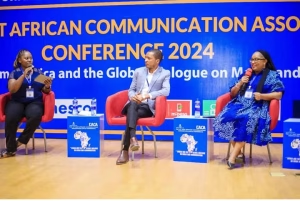In Tanzania’s corporate world, one glaring weakness silently cripples even the most promising organizations: poor media relations. While many companies pour money into advertising and branding, they overlook the very force that can make or break public perception—strategic media engagement.
Public Relations (PR) is often misunderstood as mere press release distribution or event coordination. In reality, PR—especially media relations—is a strategic powerhouse that builds credibility, shapes narratives, and earns organic media exposure. It’s what gets brands featured in reputable publications, talked about on prime-time news, and shared widely without a shilling spent on ads.
And yet, most corporates in Tanzania fail miserably at it.
The Hidden Disease: Strategic Ignorance

Most Tanzanian companies lack a strategic approach to media relations. They do not understand their audience, their stakeholders, or even the evolving media ecosystem. They treat PR reactively—responding only when there’s a crisis—rather than proactively shaping their reputation.
As Ronn Torossian bluntly stated in his 2025 article “Corporate PR Done Poorly in 2024”:
“The rapidly evolving media landscape—fueled by social media, instant news, and digital communication—means that how companies handle their public image can either elevate or destroy their reputation in mere moments.”
This is not theory. It’s a warning.
The Symptoms of Corporate Media Failure

A poorly run communications department leads to:
- Loss of narrative control
- Amplification of negative stories across media and social channels
- Damaged trust in products and services
- Disconnected relationships with journalists
- Public backlash that snowballs due to delayed or tone-deaf responses
Most media failures stem from:
- No audience insight
- Lack of messaging clarity
- Emotionless communication
- Weak media monitoring and slow reaction times
- No real relationships with journalists
- Nonexistent crisis playbooks
- Blind overuse of press releases
- No measurement of outcomes
- Inauthentic, robotic messaging
The Harsh Reality: PR is a C-Suite Issue

Corporates with strong, respected PR departments don’t end up in media scandals. They lead industries, build influence, and attract loyalty. They understand the strategic value of knowing who should write what, when, and why.
They don’t gamble with reputation—they invest in it.
Without C-suite support, PR will remain a neglected afterthought. Yet, a strong PR department isn’t a luxury—it’s a lifeline.
If You Don’t Know the Media, the Media Will Own Your Story
Media relations requires more than flipping through newspapers or doom-scrolling X. It demands a deliberate, data-driven relationship with the media landscape. It means knowing which editor to call, which outlet matters for your audience, and how to pitch stories that journalists want to cover.
This is not about PR as a campaign. This is about PR as a system—a formula built for the long term.
The Verdict: Deserved Failure

If a corporate is not:
- Investing in a competent PR team,
- Prioritizing media relationships,
- Preparing for crises,
- Measuring PR impact,
Then failure is not unfortunate—it’s deserved.
The media won’t wait for your learning curve. The public won’t forgive your silence. And reputation, once lost, rarely returns.
It’s time Tanzanian corporates wake up: Media Relations is not optional. It’s existential.



